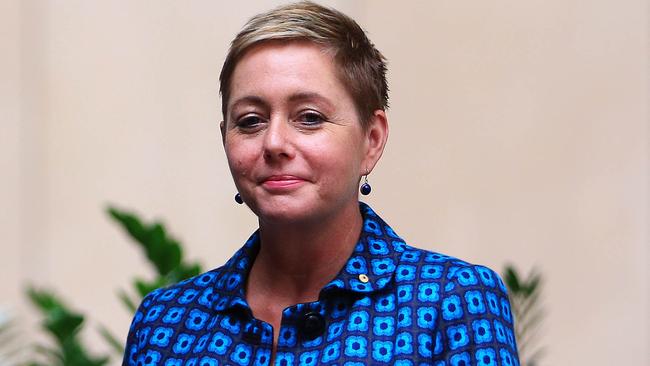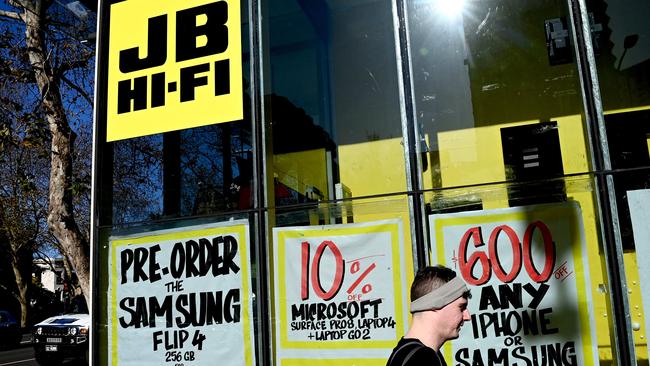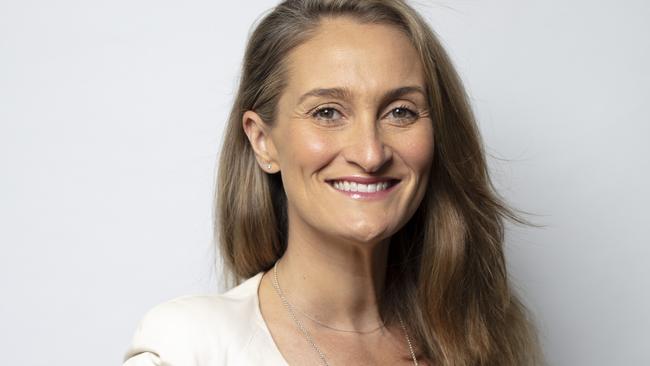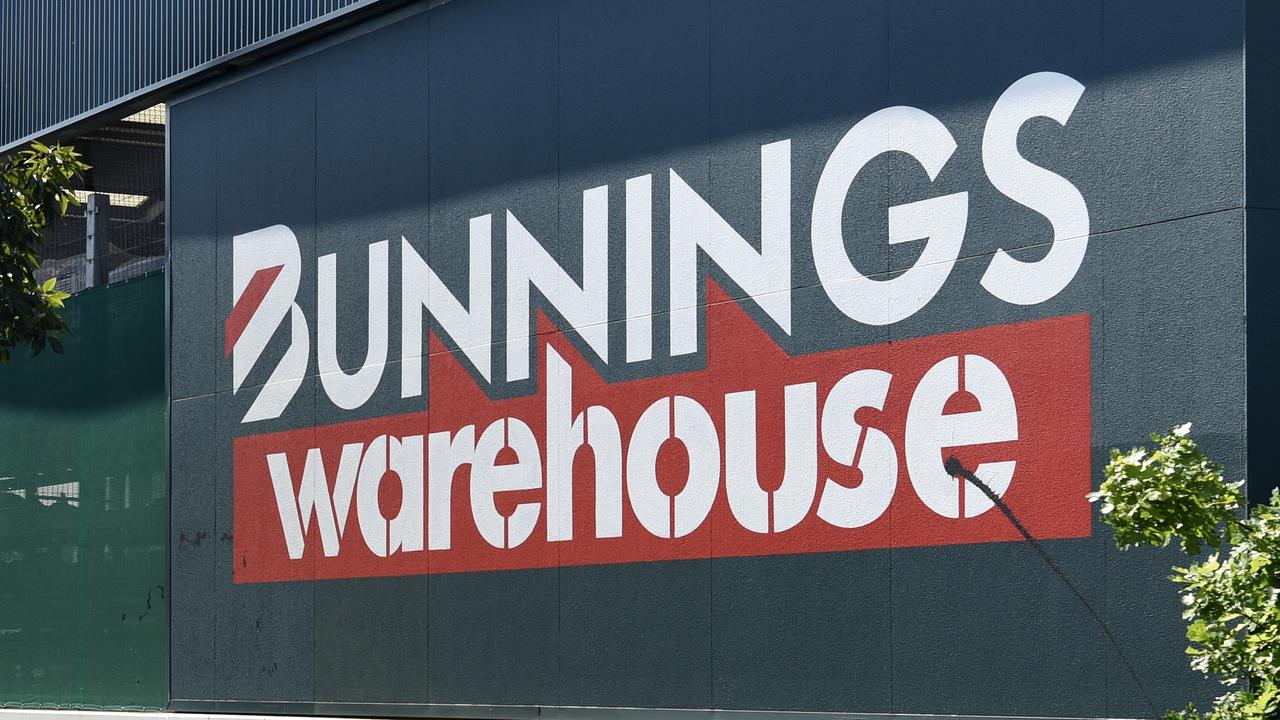JB Hi-Fi face threat over ‘worrying’ issue
A number of well known Australian companies are being targeted on an issue that could take years to resolve if they don’t step up.

Retail
Don't miss out on the headlines from Retail. Followed categories will be added to My News.
Major retailers such as JB Hi-Fi are facing the threat of investors voting against the election of male directors because they have failed to meet expectations that 30 per cent of their board are made up of women.
The Australian Council of Superannuation Funds (ACSI), which has spent 10 years campaigning to improve gender diversity of ASX-listed companies, has put 97 companies on notice that it will recommend its 26 industry super funds use their votes to push for gender diversity.
While women currently hold an average of 34 per cent of ASX 300 board seats, there are 97 companies with less than 30 per cent female directors.
This includes well known companies including Caresales.com, plumbing business Reece, software provider Wisetech, buy now pay later provider Block and property outfit Goodman Group.

ACSI CEO Louise Davidson said having 30 per cent gender diversity on Australian boards has shifted from an aspirational target to a minimum standard.
“We have updated our policy to recognise market standards and support continued improvement,” she said.
“There’s a fair way to go – even in the top 200 companies there are still 54 who fall below 30 per cent. Ultimately though, we hope that this policy becomes obsolete in the next five years as Australian companies build and maintain gender balanced boards.”
Last year, a report found gender equality for chief executive roles at Australia’s top public companies was still a staggering 100 years away for women based on current trends.
Companies in the ASX 300 with no women in their executive leadership teams included retailers JB HiFi, Baby Bunting and Nick Scali, materials company James Hardie and Mineral Resources.
Ms Davison said the “old excuse” that there weren’t enough women with appropriate qualifications has been dispelled as so far this year 45 per cent of board appointments have been women.

However, ACIS identified a number of companies with only one or two women on its board including software companies Altium and TechnologyOne, Brisbane-based mineral resource company Allkem, Evolution Mining, lab tester ALS and property development group Charter Hall.
But ACSI is also pushing companies to go beyond 30 per cent women on their boards, with a 40 per cent target instead.
The organisation may recommend during the 2023 annual general meeting season that its members vote against existing directors of ASX300 companies with poor gender diversity and are pushing for a focus on those most accountable for board succession and composition.
Its members include super funds Hesta, Cbus, Aware Super, AustralianSuper and Rest Super.
The move comes at a time that Hesta, which is worth $72 billion, is threatening to dump mining companies that have failed to meet standards on eliminating sexual harassment. It has engaged with 19 companies – with two failing to participate.
“As always, our voting recommendations will be combined with direct company engagement and applied on a case-by-case basis. While around 100 companies could currently face ‘against’ recommendations, we believe that, following engagement, the number will be much smaller,” she said.
“We hope that by working with companies to drive change we will see further progress and commitments. However, recommendations will be made against companies which make no progress at all.”

It comes as the latest report from Financy Women’s Index showed progress towards financial gender equality has faltered for the second quarter in a row with a 5.8 year wait for equality in board leadership for Australian companies.
The results also revealed the gender gap in the underemployment rate widened with a whopping 20 year wait to reach equality and a 24 year wait for the gender pay gap to close, which has remained unchanged since the December 2022 quarter.
Financy founder Bianca Hartge-Hazelman said as interest rates have been climbing so too has the female underemployment rate.
“The growing underemployment comes despite an all-time high in the number of monthly hours worked by women, helped by growth in female-dominated services industries such as retail trade, education and training and other services,” she said.
“We appear to be seeing a growing desire, or perhaps financial need, among women to work more hours but they are not able to fully achieve their employment requirements.
“Given that the gender gap in underemployment rate has widened in an environment of higher interest rates for the past two quarters, the risk is that this is not an aberration and that this may continue, resulting in higher female unemployment and a greater financial strain on women, particularly those on low incomes or single parent families.
“This would be a blow to the financial progress of Australian women and cement the view that they are the shock absorbers of high cost of living pressures, more than men.”

Acting CEO of NGS Super Natalie Previtera added that while Australia has made some big strides on the journey towards financial equity for women – there is a long way to go.
“Super on paid parental leave, access to affordable childcare, more flexible working arrangements for all genders, a greater emphasis on workplace cultures that supports both parents taking on caring responsibilities as well as greater transparency in wages, are some of the barriers we still need to crack,” she noted.
AMP Capital chief economist Dr Shane Oliver said he would have liked to have seen more in the federal budget to improve gender equality in a fundamental way.
“Paying super on paid parental leave or – even better – measures to encourage more women into courses that lead to higher pay, would be considered fundamental,” he said
Ms Hartge-Hazelman added that careers in education and expected earnings had an “worrying” time frame to equality of 139 years.
Originally published as JB Hi-Fi face threat over ‘worrying’ issue





